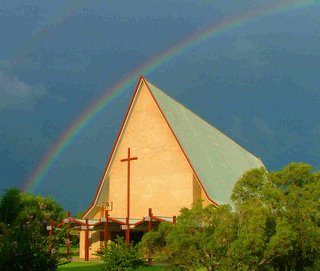B, Lent 4 Midweek - 2 Cor 6:10a "Sorrowful yet always Rejoicing"
Tonight we look again at the great exchange Jesus makes with us. We look at his gift of grace to us in light of 2 Corinthians 5:20-6:10; focusing this time on the phrase, sorrowful yet always rejoicing, from 2 Corinthians 6:10a. But first let’s hear a few verses prior to the phrase to place it in context.
21 God made him who had no sin to be sin for us, so that in him we might become the righteousness of God. 1 As God’s fellow workers we (Paul and Titus) urge you not to receive God’s grace in vain. 3 We put no stumbling block in anyone’s path, so that our ministry will not be discredited. 4 Rather, as servants of God we commend ourselves in every way: in great endurance; in troubles, hardships and distresses; 8 through glory and dishonour, bad report and good report; genuine, yet regarded as impostors; 9 known, yet regarded as unknown; dying, and yet we live on; beaten, and yet not killed; 10 sorrowful, yet always rejoicing. (2 Corinthians 5:21-6:1,3,4,8-10)
Paul speaks to the Corinthians commending himself and Titus as being sorrowful, yet always rejoicing. As God’s representative he is vexed, irritated, sad and distressed, so much so he is swallowed up with grief for God’s children in
Yet at the same time Paul is always rejoicing in the knowledge that even in the midst of so much turmoil, this church was still the
He says, “For in him you have been enriched in every way—in all your speaking and in all your knowledge—because our testimony about Christ was confirmed in you. Therefore you do not lack any spiritual gift as you eagerly wait for our Lord Jesus Christ to be revealed. He will keep you strong to the end, so that you will be blameless on the day of our Lord Jesus Christ. God, who has called you into fellowship with his Son Jesus Christ our Lord, is faithful.” (1 Corinthians 1:5-9)
Paul was confident, not because of the Corinthians’ piety, not because they prophesied or spoke in tongues, or did anything else, but because God is faithful. He knew that God could not disown himself, having made the Corinthians his Children in baptism when he called them into fellowship with his Son Jesus Christ our Lord.
What Paul saw was corruption on a grand scale, but he was called by God not to take his grace in vain. He was called to see the reality of God’s Word amongst his children and call them to see the pain they were causing themselves and each other, and be led to repentance and renewed trust in the spiritual gifts they had once received and trusted. Paul endured with the Corinthians because Christ endured the cross for the sake of humanity. And as Paul brought the truth to the Corinthians he no doubt bore sorrow and pain as he confronted the ugliness of their sin.
But still Paul is confident and says, “Make room for us in your hearts. We have wronged no one, we have corrupted no one, we have exploited no one. I do not say this to condemn you; I have said before that you have such a place in our hearts that we would live or die with you. I have great confidence in you; I take great pride in you. I am greatly encouraged; in all our troubles my joy knows no bounds.” (2 Corinthians 7:2-4)
So
We might ponder his pain of having the twisted crown of thorns pressed into his skull, and we might begin to perceive the suffering he felt as his hands and feet were flogged to the cross being left hanging there to die. But we can’t even begin to understand what it must have been like to have given up his divinity in total silence and humility; to give up his right as God the Son, and hand his life over as the sin offering for humanity; to die as the suffering servant.
In the
However, in hearing he endured much suffering, we are also told in Hebrews 12:2-4, “Let us fix our eyes on Jesus, the author and perfecter of our faith, who for the joy set before him endured the cross, scorning its shame, and sat down at the right hand of the throne of God. Consider him who endured such opposition from sinful men, so that you will not grow weary and lose heart. In your struggle against sin, you have not yet resisted to the point of shedding your blood.”
So even in the midst of suffering and pain Jesus saw the joy of what was to come. He saw the joy and the victory he would win for all. This is the joy that Paul saw for the church in
We will face many sorrows and sufferings on this earth in this life. But remember, Jesus entered his creation suffering at the hand of sin too. He bore the sorrow suffering and pain of sin, and allowed it to put him in the grave. And in the midst of so much heartache suffering and sorrow, he gives us the victory of his atoning death and life-giving resurrection — a cause for eternal joy. In your struggle against sin, don’t grow weary and lose heart.
Let your suffering and sorrow lead you to the cross, the source of forgiveness, the source of all true grace and joy. Let your sorrow lead you to repentance, so that you might live for ever in joy, peace, and love. Amen.





